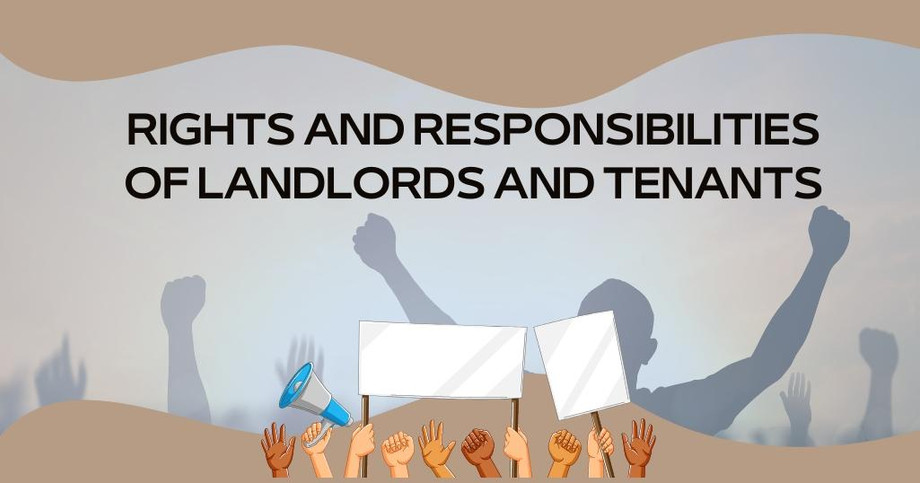Rental agreements play a vital role in defining the rights and responsibilities of both landlords and tenants in India. These agreements establish the terms and conditions under which a property is leased, ensuring a fair and harmonious landlord-tenant relationship. In this blog, we will explore the key rights and responsibilities of both parties to help ensure a smooth and mutually beneficial rental agreement.
Landlord's Rights And Responsibilities:
Property Ownership And Rent Collection
As the owner of the property, the landlord possesses certain rights and responsibilities, including:
- Right to Property: Landlords have the right to own and possess their property. They can decide whether to rent it out, set the rent amount, and establish the rules and regulations for its usage.
- Rent Collection: It is the landlord's responsibility to collect rent from the tenant on the agreed-upon date and in the specified manner. They should provide proper receipts or documentation for rent payments.
Property Maintenance And Repairs
Maintaining the property in a habitable condition is a crucial responsibility of the landlord, including:
- Repairs: Landlords must ensure that the rented property is in good repair and free from any structural defects or safety hazards. They are responsible for fixing plumbing, electrical, and other essential systems as needed.
- Common Area Maintenance: If the property has common areas like corridors, staircases, or gardens, the landlord should maintain them in a safe and clean condition.
Security Deposit And Legal Compliance
Landlords have specific rights and responsibilities related to security deposits and legal compliance:
- Security Deposit: Landlords can request a security deposit from tenants as a safeguard against any potential damages or non-payment of rent. They must return the deposit, deducting legitimate charges, within a reasonable period after the termination of the tenancy.
- Legal Compliance: Landlords must adhere to all relevant laws and regulations governing rental properties, such as obtaining necessary permits, following rent control guidelines (if applicable), and ensuring compliance with fire safety regulations.
Tenant's Rights And Responsibilities:
Occupancy And Rent Payment
Tenants have certain rights and responsibilities that ensure a peaceful and lawful occupancy:
- Right to Occupy: Tenants have the right to occupy the rented property as agreed upon in the rental agreement. They should be provided with uninterrupted possession of the premises, unless there are lawful reasons for eviction.
- Rent Payment: Tenants must pay the agreed-upon rent on time and in the manner specified in the rental agreement. They should obtain receipts for all rent payments made to the landlord.
Property Care And Maintenance
Maintaining the rented property in a reasonable condition is the responsibility of the tenant:
- Property Care: Tenants are expected to take reasonable care of the property, keeping it clean and undamaged. They should promptly report any maintenance issues or damages to the landlord.
- Compliance with Rules: Tenants should abide by the rules and regulations set by the landlord, such as restrictions on pets, noise levels, or usage of common areas.
Legal Awareness And Notice Periods
Tenants should be aware of their legal rights and responsibilities, including:
- Legal Awareness: Tenants should familiarize themselves with relevant laws and regulations regarding rental properties in their respective states to ensure they are not taken advantage of or subjected to unfair practices.
- Notice Periods: Tenants are required to provide sufficient notice to the landlord before vacating the premises, as specified in the rental agreement or local tenancy laws. This allows the landlord ample time to find new tenants.
Conclusion:
A clear understanding of the rights and responsibilities of both landlords and tenants is essential for a harmonious and mutually beneficial landlord-tenant relationship. By upholding their respective obligations and respecting each other's rights, landlords and tenants can create a positive rental experience that benefits both parties. Additionally, seeking legal advice or assistance when necessary can help clarify any ambiguities and ensure a fair and lawful rental agreement.

